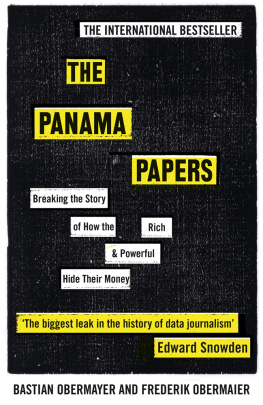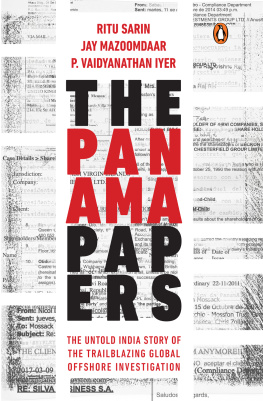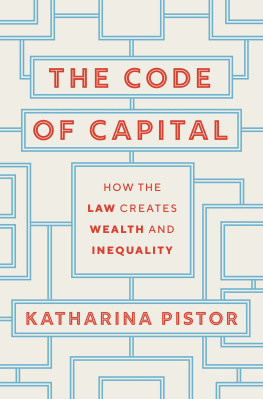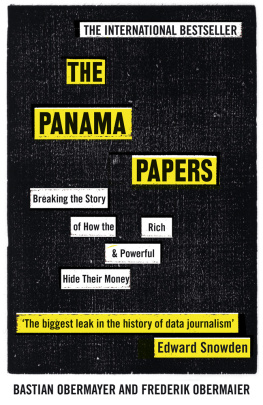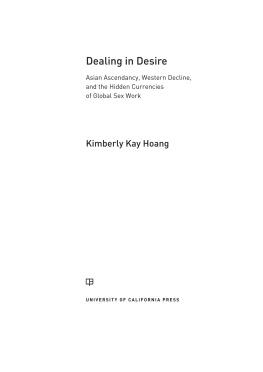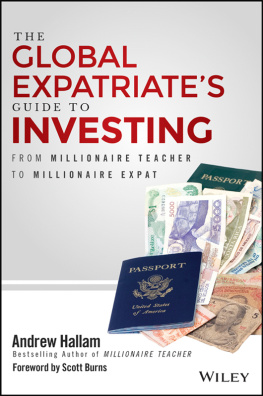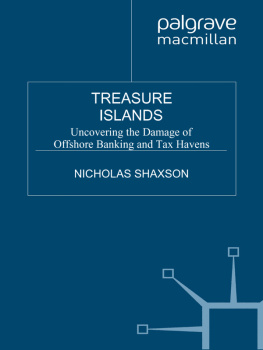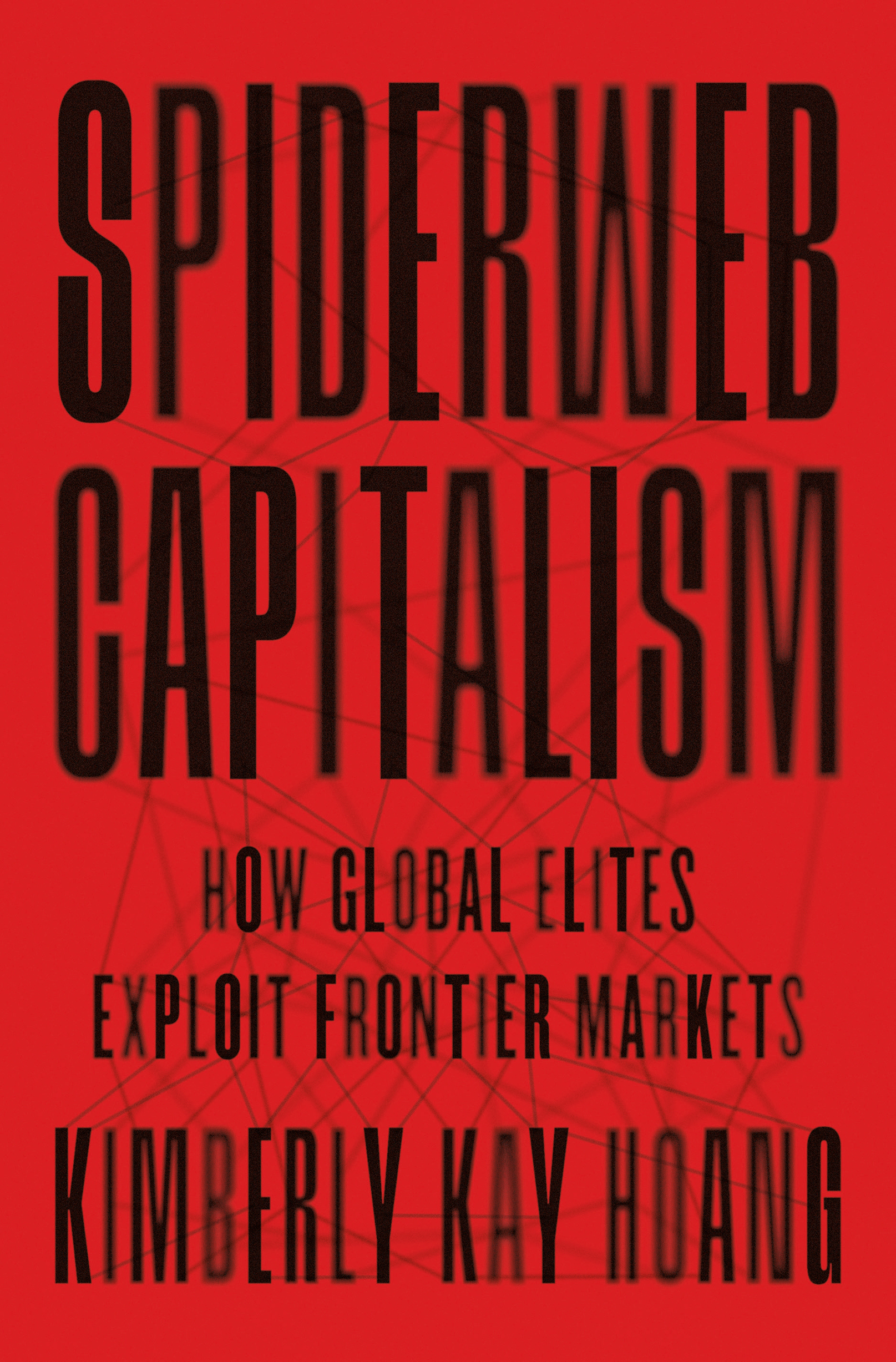SPIDERWEB CAPITALISM
Spiderweb Capitalism
How Global Elites Exploit Frontier Markets
Kimberly Kay Hoang
PRINCETON UNIVERSITY PRESS
PRINCETON AND OXFORD
Copyright 2022 by Princeton University Press
Princeton University Press is committed to the protection of copyright and the intellectual property our authors entrust to us. Copyright promotes the progress and integrity of knowledge. Thank you for supporting free speech and the global exchange of ideas by purchasing an authorized edition of this book. If you wish to reproduce or distribute any part of it in any form, please obtain permission.
Requests for permission to reproduce material from this work should be sent to permissions@press.princeton.edu
Published by Princeton University Press
41 William Street, Princeton, New Jersey 08540
99 Banbury Road, Oxford OX2 6JX
press.princeton.edu
All Rights Reserved
ISBN: 978-0-691-22911-9
ISBN (e-book): 978-0-691-22910-2
Version 1.0
British Library Cataloging-in-Publication Data is available
Editorial: Meagan Levinson and Jacqueline Delaney
Jacket Design: Karl Spurzem
Production: Erin Suydam
Publicity: James Schneider and Kathryn Stevens
Copyeditor: Annie Gottlieb
CONTENTS
- vii
- xi
ACKNOWLEDGMENTS
This book has taken me quite literally all around the world and into some of the most privileged spaces that I could ever have fathomed as a first-generation college graduate from a refugee and working-class background. As a young kid growing up, I understood that our society was stratified by class. In my imagination wealthy people lived in well-manicured homes in gated communities, walled off from the rest of us. However, my journey doing the research for this book taught me that there is a kind of stratospheric wealth invisible and hidden in some of the most elite social circles that span the globe.
Conducting research on wealthy people is an extremely difficult task, and while many social scientists have been able to make great inroads into seeing how wealthy individuals live, consume, and make sense of their wealth in relation to those less fortunate, few systematically study how the rich make and protect not only their money, but also their reputations. As someone who did not attend an elite prep school or an Ivy League college, or work in a prestigious financial firm upon graduating from college, I was very much an outsider trying to crack open doors that are hidden and walled off from people like me. This is by far the most difficult and ambitious research I have ever conducted. Not only was getting access to wealthy individuals around the world highly challenging, but then trying to connect the dots of their relationships with one another in tangled and layered webs felt like being caught inside a 3D maze with no clear way in or out.
This book would not be possible without the people who let me into their social and business networks, took the time to let me interview them, and made crucial introductions to others in their network. They not only shuttled me around the world with them into spaces that would otherwise be off limits to me, but they also spent a great deal of time explaining their strategies and dilemmas as they navigated markets in new frontiers. Studying highly educated elites who are so specialized in their respective areas was at times intimidating, and I often wondered what value I could add as a sociologist. However, over time, the interviews I carried out with so many people helped me to see that few people had the luxury of time to connect the dots of the complex nodes in these massive webs. I am grateful to all the people who were both patient and at times incredibly harsh, because they opened another world for me to study, analyze, and explain to other outsiders.
I am deeply grateful for the financial or intellectual support of my academic community at the University of Chicago. When I arrived at UChicago, my colleagues pushed me to think about a big idea project that was more ambitious theoretically and empirically than my first book. This was both intimidating and exciting. Pre-tenure, this felt like a high-risk, high-reward endeavor. But as much as they pushed me intellectually, I received an extraordinary amount of support from four different department chairs, Elisabeth Clemens, Karin Knorr Cetina, Linda Waite, and Andreas Glaeser, who all helped me find the courage to resist the inner pressure to produce quick results with less rigorous data and analysis and instead slow down to work on a big idea project. I also felt a great deal of support from my deans, David Nirenberg and Amanda Woodward, who both were supportive of the project in its early stages and provided financial support to backstop the external grants I received.
This project is an academic project shaped by being in conversation with my colleagues and students at the University of Chicago. I am grateful to Andrew Abbott, Patrick Bergemann, Karin Knorr Cetina, Edward Laumann, Jonathan Levy, John Levi Martin, Kristen Schilt, Amanda Sharkey, Forrest Stuart, Jenny Trinitapoli, Robert Vargas, and Geoffrey Wodtke, who all read various drafts of this manuscript and have been extraordinarily generous with critical feedback that helped push my theorizing in important ways. I am especially grateful to the curious and fearless undergraduate research assistants who worked with me at various stages of the research process: Khoa Phan Howard, Lucas Penido, Gaurav Kalwani, Kevin Petersen, Quinn Nguyen, Emily Zhu, Lena Breda, Nikhilesh Chitlangia, Zhi Rong Tan, Yunhan Wen, Pallavi Anand, Richard Wu, and Ana Guerrero. Brian Fenaughty read the entire book manuscript, provided sharp feedback, and was an invaluable conversation partner in my final stages of writing. The staff at Global Studies, especially Lee Price, kept a warm and welcoming environment when I needed to hide out and write in the early mornings before students trickled onto campus.
In 2020, I had the privilege of holding a book workshop where Jennifer Carlson, Greta Krippner, and Sida Liu each generously read a rough draft of the full manuscript and provided incredibly valuable written feedback, which pushed me to deepen my analysis and clarify the books theoretical contribution across multiple fields. In addition, Terence Halliday and Hannah Appel both read the full manuscript and provided generous critical comments. Hana E. Brown and Jennifer Jones have been my steadfast writing crew, meeting biweekly for over ten years now. They have read everything I have ever written, from the most half-baked ideas to polished drafts in the final stages of revising, and their friendship has sustained me during some of the most challenging times with this project.
The research for this book was costly, and I would like to acknowledge several institutions and organizations that awarded me with generous grants and fellowships supporting my research. The field research would not have been possible without the generous support of the Fulbright Global Scholar Award and the Social Science Research Council Transregional Research Junior Scholar Fellowship: InterAsian Contexts and Connections. At the University of Chicago, I received support from the Center for the Study of Gender and Sexuality, the David Hoeft Award for Newly Tenured Faculty, the Center for International Social Science Research, an Albion W. Small Grant, along with grants from the University of Chicagos Centers in Hong Kong and Paris. Together those awards helped to cover the costs of travel, hotels, and meals so that I could both carry out interviews and connect the different people involved in building these complex capital webs. Given the extraordinary demands on my time with respect to teaching, service, and directing the Global Studies program, I am grateful for the American Council of Learned Societies Fellowship that enabled me to take a research leave to complete the final draft of this book.



